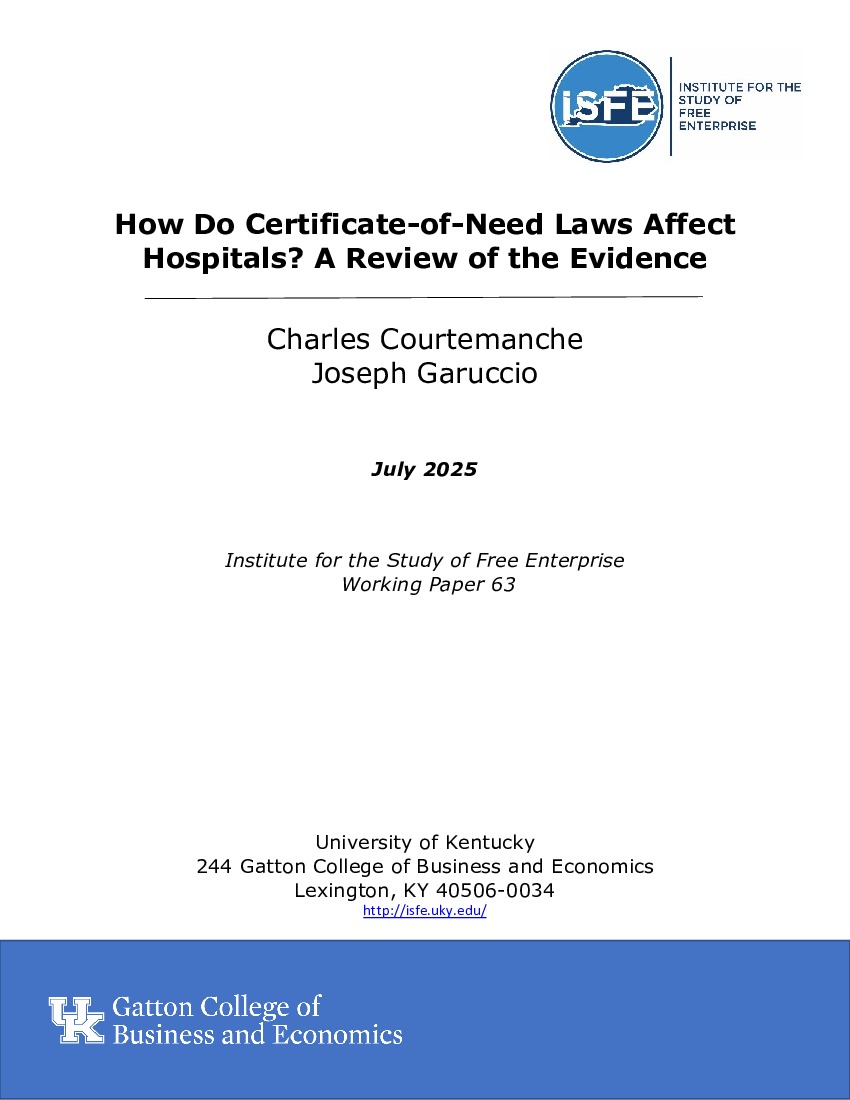How Do Certificate-of-Need Laws Affect Hospitals? A Review of the Evidence
Charles Courtemanche
University of Kentucky
Joseph Garuccio
University of Kentucky
Executive Summary:
Certificate-of-Need (CON) laws require the approval of states’ health planning agencies for health care providers to engage in regulated actions such as opening or expanding facilities or purchasing equipment. These actions are regulated either by name or amount, depending on the state. Such laws were seen in the U.S. as early as 1964 and historically aimed to improve health care quality and accessibility while restraining costs and wasteful redundancies. Opponents of CON laws suggest these aims have not been met and that support persists largely because of the advocacy of incumbents benefiting from the anti-competitive nature of such laws.
This study reviews the literature on CON laws, with an emphasis on how they affect hospitals. Both opponents and proponents of these laws tend to take for granted that incumbent hospitals benefit from the barriers to entry created by CON laws. All else equal, economic theory suggests that hospitals should see fewer new competitors, charge higher prices, and earn higher net revenues. However, these predictions assume otherwise perfectly competitive markets, and health care markets are heavily distorted in ways that change meaningfully over time. Further, CON laws restrain not only entry of new facilities but also expansion of existing facilities, reducing their ability to leverage any potential regulatory advantages.
Viewed in its totality, the literature suggests that CON laws benefit hospitals in some ways and hinder them in others. There is strong evidence of restricted entry and an increase in the number of procedures per hospital. However, other evidence points towards constraints on hospital expansion, while effects on prices and profitability are mixed and quality of care, if anything, appears to worsen.
Therefore, the available evidence does not support the contention that incumbent hospitals clearly and substantially benefit from CON laws. However, more studies using modern tools to identify causal effects that generalize beyond narrow settings are needed before more definitive conclusions can be reached.
Released: July, 2025

 Twitter
Twitter Facebook
Facebook